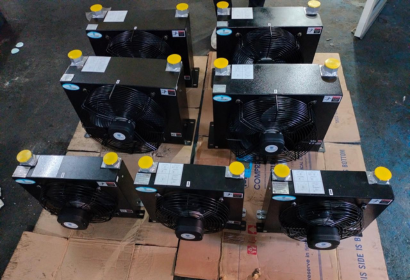
A hydraulic air cooler is a crucial component in hydraulic systems, designed to dissipate heat generated during system operation. As hydraulic fluid flows through the system, it accumulates heat due to friction and pressure changes. An air cooler helps regulate this temperature by transferring the heat from the fluid to the surrounding air, ensuring the system operates within an ideal temperature range. This cooling process prevents overheating, which can lead to equipment failure, fluid degradation, and reduced overall system efficiency.
Hydraulic air coolers are designed for efficiency, using finned tubes or plates to increase surface area and maximize heat transfer. A fan blows air over these surfaces, cooling the fluid as it circulates. This system is highly effective for various applications, including mobile and industrial machinery, where cooling solutions must be compact, reliable, and low-maintenance. The air cooling process requires no additional coolant, making it cost-effective and environmentally friendly.


Hydraulic air coolers are crafted with durable materials, making them well-suited for harsh environments and ensuring long-lasting, reliable performance. By stabilizing fluid temperatures, these coolers prevent overheating, which boosts both system efficiency and longevity. Their robust design allows them to withstand demanding conditions while providing consistent cooling, essential for maintaining the optimal function of hydraulic systems. This durability and efficiency make hydraulic air coolers invaluable for high-performance industrial applications that rely on steady, controlled temperatures.

